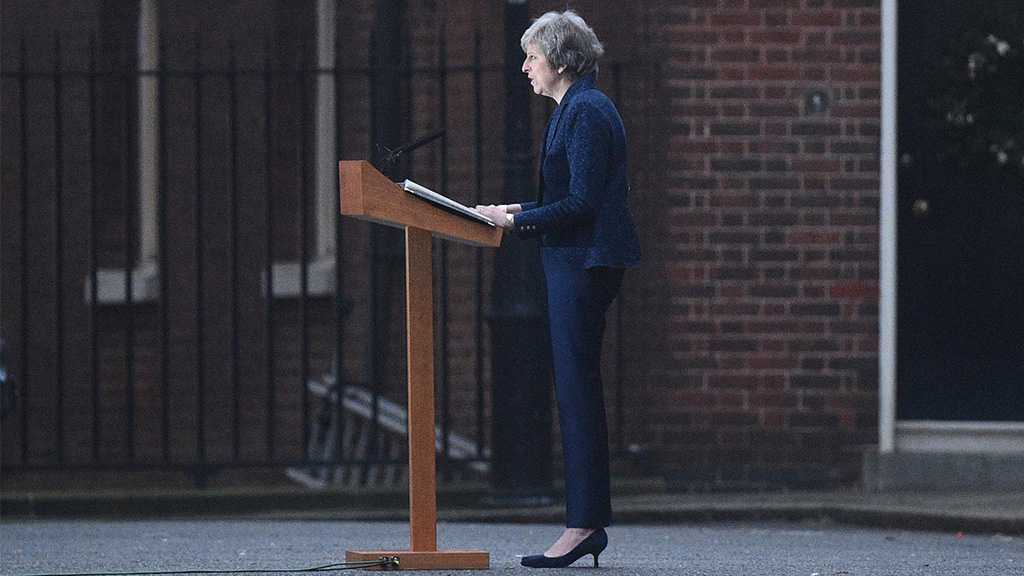Editor’s Picks: Theresa May Survives Confidence Vote, Heads to Brexit Talks

Local Editor
As British Prime Minister Theresa May survived a vote of confidence by Conservative MPs, she is heading to Brussels for the second time this week in another frantic bid to win Brexit concessions.
World media dealt with the development as a top priority, mouthing several analysis pieces of which we chose you the following:
To begin with, The Independent’s editorial board considered may’s winning of 83% of the vote as if she is living to fight another day – but the only allies she can rely on now are the sands of time.
Such is the scale of the crisis in British politics – and entirely self-inflicted one because of Brexit – that even a leadership challenge to a sitting Conservative prime minister is taken in its stride by the political classes, though of course the atmosphere in Westminster is unusually febrile.
Dramatic as events were, from the rumors circulating on Tuesday evening, the breaking of the news at breakfast the following morning, through to the evening vote, it was something of a one-day wonder. She made it, again.
In many ways May has been fortunate in her enemies: they lack nous, have poor timing, and are too fractious and too chaotic themselves to mount a serious opposition. May can now isolate them and concentrate on building a cross-party coalition to back her deal. She has failed, rather dismally, to do that so far.
She has also failed to score the kind of victory that would truly silence her critics. The vote against her was uncomfortably high and will have been unwelcome. Nonetheless, we know her instinctive reaction to adversity is to press on.
For its part, The Guardian’s editorial considered May’s vote of confidence a reluctant reprieve.
Hard Brexit fanatics failed to unseat May. She must now be more explicit in ruling out their dangerous no-deal fantasies.
It is in keeping with May’s style of government that a confidence vote on her leadership was provoked not by something she did but by something she did not do. Dither has been her favored tactic throughout the Brexit process. But in refusing to test the popularity of her deal in a Commons vote, May tested the limit of Conservative MPs’ patience.
They have let her continue as long as she stands down before a general election. That condition is inseparable from the 83-vote margin of her victory: enough, but far from resounding. The result conveys no depth of loyalty beyond a desultory demand to get on with Brexit. May’s orders are to settle that matter, then go.
It is a delusion to imagine that a new leader could manage the task much better than the incumbent. That idea expresses denial of how costly it is to deliver any Brexit, and how unrealistic the leave campaign promises proved to be. While Conservatives of all stripes have been frustrated by May, the most destructive animosity comes from Eurosceptic ideologues who refuse to take responsibility for positions they advocate. That sect has traduced decent, pragmatic Tory traditions and obstructed the path to rational compromise.
Under the title “Theresa May and the Conservative Will to Power” Tim Bale wrote for the New York Times that the divisions are deep, but Britain’s ruling party knows how to stand together when the time comes.
So May lives to fight another day. She won Wednesday’s vote of no confidence: 200 members of her party stood by her; 117 did not. Indeed, under the Conservative Party’s rules, it will be another year before her opponents in the party can try to unseat her as leader.
But does her victory really resolve anything? There’s been speculation that the deep divisions and factional fighting between the hardline Brexiteers and the Conservatives’ less Eurosceptic wing might do more than just unseat the prime minister; it might ultimately break the party apart, with some members coalescing around a nationalist, even populist, alternative while their less strident colleagues join a putative “centrist” party committed to a more moderate, more open style of politics. Aren’t we, then, looking at a truly existential threat to the world’s oldest, and arguably most successful, party?
Probably not. Of course, past performance is no guarantee of future performance, but the Conservative Party’s “will to power” has seen it through many crises in its 200-year history. Holding office, not doctrinal purity, has always been its No. 1 goal. It often bends but it rarely breaks. Even Brexit, however bad things seem, is unlikely to change that.
No one is saying, of course, that “Europe” doesn’t matter. Britain’s relationship with the Continent has long posed a problem for the party, not least because the economic advantages it seems to offer involve a trade-off with national sovereignty, something Conservatives care about deeply. This has been the case since the 1970s, when Edward Heath, the prime minister at the time, had to rely on Labor votes in Parliament in order to bring Britain into the European Economic Community, the European Union’s predecessor.
May’s problems don’t look likely to go away just because she won Wednesday’s no-confidence vote. The Brexit process remains up in the air, and her deal with the European Union is still unpopular with many in her party.
Source: Al-Ahed News




